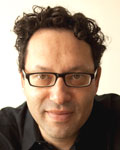Why Nokia got into bed with Microsoft
Elop - a former Microsoft president hired in September who insisted, "I am not a Trojan horse" - made three high-profile appearances at the Mobile World Congress, the largest wireless conference, in Barcelona last week.
"The world is shifting from a battle of devices to a war of ecosystems," he said, rationalising how Nokia, which is still the world's largest seller of cellphones despite losing market share to Apple and Google's Android, made its decision.
Nokia lost US$7.7 billion of its market valuation in the two days after the announcement last Friday, as investor sentiment disapproved of the deal. But it was not of Elop's making, and after hearing him explain his choice and interviewing chief technology officer Rich Green, it seems the under-pressure Nokia made the best of a bad situation.
Mobile phones are no longer independent devices, but highly sophisticated mini computers that connect to an array of cloud-based services.
The applications market is also booming. Researchers IDC predict that mobile app downloads will reach 77 billion by the end of 2014, from 10.9 billion in 2010.
Elop contends that Apple and Google have created a "duopoly" and, by siding with Microsoft, "we are in a position to create a third ecosystem. We know what it means to be the most friendly to the operators.
"This is good news for operators," he said, clearly a reference to the cellular networks who are concerned about Apple's and Google's growing power. Apple insists on a percentage of iPhone customers' revenue (and a 30% share of apps, as well as for its content subscription service announced this week), while Android effectively relegates the networks as its users access Google's cloud-based services.
European operators are particularly unhappy and have set up a committee to discuss their options.
Nokia's choice is particularly stark, given two recent milestones in the last quarter. Android, which has 300,000 new activations a day, just overtook Nokia's Symbian operating system for the first time, while smartphones outsold PCs, something that wasn't expected to occur until 2012.
"This is a bold decision by Nokia, but absolutely the right one, both for itself and for Microsoft, given the drastically changed landscape for smartphones in the past couple of years," said Ovum principal analyst Tony Cripps.
Green says: "It's a significant deal on the back end, including services, mapping, store capabilities and operator billing."
Asked if Nokia had flogged the crown jewels by giving up its aged Symbian platform and effectively abandoning the MeeGo project announced last February with Intel, he replied: "What were viewed as crown jewels in the past - the single smartphone operating system - is now part of an ecosystem, with services layered on top of that."
Indeed, the focus has shifted in recent years from the phone itself to the apps that run on it and the cloud services it accesses.
"We are an enormous change catalyst. We can bring Windows devices to new places Microsoft could only dream of," said Green.
Nokia will use Microsoft's search engine, Bing, while Nokia's maps will be incorporated into the Windows Phone 7 platform. Elop stressed that Nokia is including its software and crucial operator billing ability into the ecosystem to strengthen it and will allow other handset makers to use it.
Of the painful decision, Green says: "The road ahead is far longer than the grief behind."
Microsoft CEO Steve Ballmer, who invited Elop on stage this week, announced further features for Windows Phone 7, including cut-and-paste and Twitter integration, due later this year.
Green says: "We think it's good software in terms of its design. As it gets to more and more people, they will be smitten by it. As CTO, I am very impressed with it."
Praising Windows Phone 7's so called smart design, he says it has been optimised for mobiles, has a natural flow to its functions (how it displays upcoming events and messages from contacts) and cleverly lets you access your camera without putting in your password.
The apps-building process is good, he adds, while "where the platform begins and ends is hard to tell. It's a much more integrated model. It's a model that seems to mimic the way people think. It's a parallel to how your brain operates, how you think. It's a single most important design feature."
Nokia is aiming to get a Windows 7 phone out this year.
Soure: Business Times
Source: I-Net Bridge

For more than two decades, I-Net Bridge has been one of South Africa’s preferred electronic providers of innovative solutions, data of the highest calibre, reliable platforms and excellent supporting systems. Our products include workstations, web applications and data feeds packaged with in-depth news and powerful analytical tools empowering clients to make meaningful decisions.
We pride ourselves on our wide variety of in-house skills, encompassing multiple platforms and applications. These skills enable us to not only function as a first class facility, but also design, implement and support all our client needs at a level that confirms I-Net Bridge a leader in its field.
Go to: http://www.inet.co.za























